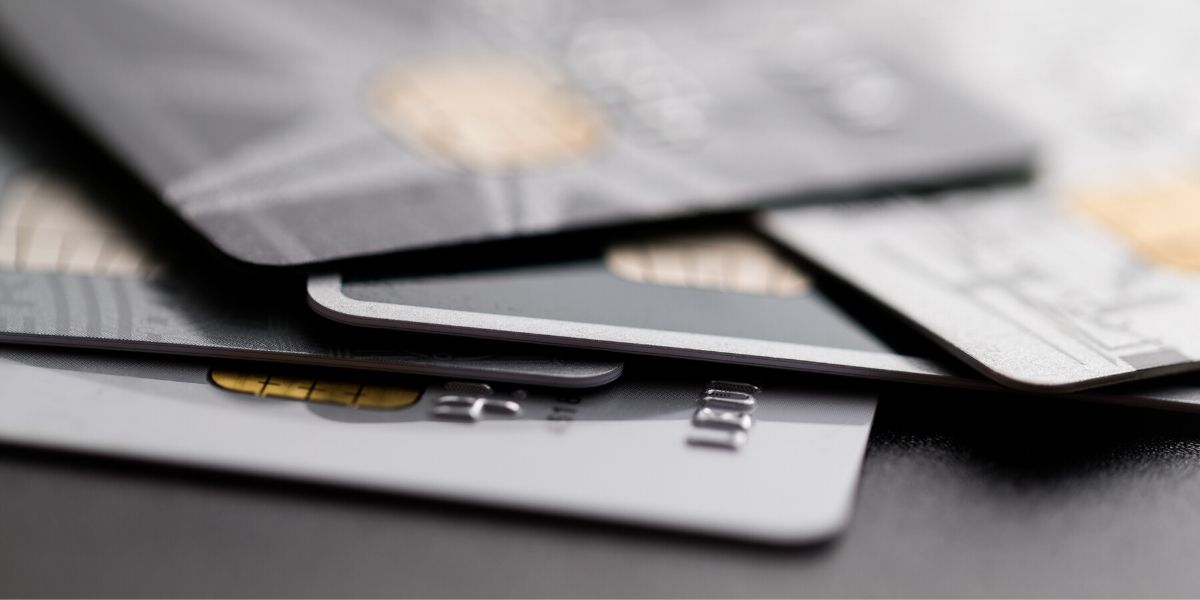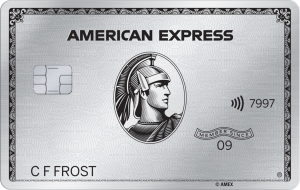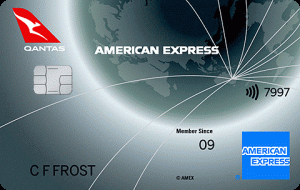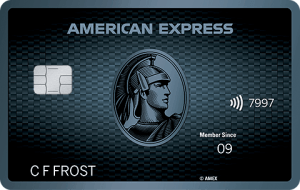A new credit card can unlock payment flexibility and rich rewards, but the application process to obtain one involves a number of steps and considerations. The question about how to apply for a credit card is a common one, and it’s something that is often asked by our readers.
This article provides general information and is not intended as financial advice. Before making a decision to apply for a credit card, you should undertake your own research and consider your individual financial situation.
Here, we provide an overview of what the credit card application process involves and factors you might want to consider before you decide to apply for a new card.
Why should I apply for a credit card?
Credit cards are used by millions of Australians as a mechanism for spending in-store, online, in-app or over the phone. When used responsibly, credit cards can be a convenient payment tool. However, before you apply for a credit card, it’s important that you consider your financial situation and your ability to pay back the line of credit that is provided.
Browse featured credit cards
It’s important to realise that a credit card is not ‘free money’. To avoid incurring unnecessary fees, you should pay your balance off in full each month.
There are six key considerations you should think about before choosing to apply for a credit card. These include:
Whether the credit card has an annual fee: While most banks offer $0 annual fee credit cards, premium rewards cards can charge hefty annual fees that help to cover the cost of cardholder benefits. Some credit cards offer a reduced or $0 annual fee in just the first year to a new customer.
The interest rate, fees and charges: According to Choice, low rate credit cards typically offer low annual interest rates, whilst premium credit cards might charge a higher purchase rate. Consider also other fees you may incur, such as late payment fees, fees for cash advances and foreign currency charges.
How the credit card application might affect your credit rating: A large number of credit card applications in a short timeframe may detrimentally impact your credit score.
Ways you can pay your card off: Some banks provide sophisticated online account portals which enable automatic card payments through a link to your bank account. In other cases, you may need to use pay, undertake a funds transfer or pay your bill at Australia Post.
The rewards and benefits on offer: Consider whether the ‘perks’ offered by the credit card offset any annual fee and sundry fees and charges you may be exposed to.
Eligible purchases: Some credit cards restrict bonus points earning to specific categories of spend. Before you choose a rewards card, you should assess what purchases are eligible.
If you are worried about your ability to manage a credit card, you may instead want to consider a debit card or a pre-paid Visa or Mastercard. A debit card doesn’t provide you with a line of credit, rather it only allows you to use the savings you already hold in your bank account.

What are the benefits of applying for a credit card?
Depending on the card you choose, you may be able to access rewarding benefits and perks, above and beyond the flexibility to pay with plastic. Selected credit cards offer:
1. The ability to earn rewards points: Some credit cards offer bonus rewards points to a new customer (e.g. Qantas Points) upon meeting a minimum spend threshold on eligible purchases within a specified timeframe. Most rewards credit cards also allow you to earn additional points when you spend on your card. Some credit cards cap rewards points earning, whilst others, such as American Express, allow unlimited points earn each month or each year.
2. Access to complimentary insurances: Many credit cards offer access to insurance. Common insurance products offered by credit cards include buyers protection insurance and domestic and international travel insurance. Before using an insurance policy offered on a credit card, you should do your research and check that it meets your needs
3. Airport lounge passes: Selected Qantas Points earning credit cards provide a limited number of single entry passes to Qantas Club lounges. Selected American Express credit and charge cards allow entry to the American Express Lounge located at Sydney International Airport and Melbourne International Airport. A small number of credit cards provide entry passes or annual memberships to Priority Pass.
4. Balance transfers: From time to time, selected credit cards offer the ability to apply for a balance transfer from another product. A balance transfer usually needs to be requested when you submit your credit card application. How does it work? A balance transfer may provide an interest-free period on an existing credit card balance. Fees may apply, so it’s important to read the terms and conditions before you proceed.
5. Spend and Save offers: Selected credit cards offer limited-time spend and save offers to reward cardholders who make purchases at specific retailers.
6. Cash back: A small number of credit cards offer cash back on eligible purchases. This is usually limited to a monthly threshold.

Why do banks make customers apply for a credit card?
When you apply and are approved for a credit card, the bank is providing you with a line of credit. Because of this risk, card issuers need to review a customer’s ability to repay the balance on a credit card and ensure they meet lending criteria before approval is granted.
In order to assess financial viability, customers may be required to submit detailed personal and financial information. The eligibility requirements can be substantial. A bank or card provider may also choose to carry out plus a background check are before you can be approved.
What qualifies you to apply for a credit card?
Each card issuer has different application and assessment requirements, so there’s no ‘one size fits all’ approach. However, in order to apply for a credit card, you’ll typically need to satisfy at least the following criteria and be able to provide information to prove it:
Be of legal age: In Australia, you must be at least 18 years of age to apply for a credit card in your own name. Primary credit card accounts can’t be assigned to minors. However, some card providers may allow minors who are family members of a primary credit cardholder to become an additional cardholder on an adult’s primary credit card account.
Provide multiple forms of identification: When you apply for a credit card, a bank will typically ask the primary cardholder to provide one or more forms of personal identification to provide your identity. This might include a driver’s license, issued in your state of residence, a passport, Medicare Card or Proof of Age Card.
Have a verifiable source of income: Banks and card providers are increasingly looking at evidence of income as part of the credit card application process. Before you apply for a credit card, make sure you meet the minimum income threshold (if applicable) and be ready to provide evidence of your income. This might involve sending through payslips or your previous year’s ATO tax return. You may also need to provide contact details for your employer, to allow for income verification. If you’re applying for a credit card for a business, you may need to provide additional information. This could include your ABN, financial statements (including profit and loss details) and/or contact details for your accountant.
Have a good credit history: Banks and credit card providers will assess your credit worthiness differently, using proprietary tools. However, to determine your credit criteria, most providers will require you to hold a positive credit history. This typically means not registering any credit defaults and holding a minimal history of missed repayments. Credit providers may also look at the number of credit inquiries on your file and how frequently you apply for credit.

How to apply for a credit card
Here are seven key steps that will assist with finding and applying for the right credit card for your needs:
- Consider your financial status
- Choose the credit card that’s right for you
- Complete your application
- Specify your preferred credit limit
- Enter your frequent flyer number
- Provide any additional information that may be required
- Wait for card approval (or rejection)
Determine your financial status: Before you apply for a new credit card, it’s important to be fully aware of your current financial status, including your income, spending requirements, any current money you owe and your savings. You should also personally assess your ability to make repayments, to avoid carrying a credit card balance from month to month.
Choose the credit card that’s right for you: You should undertake research to find out everything you need to know to determine which credit card product is right for you. This might involve comparing credit card products, reading in-depth credit card guides and looking at what is available in the market
Complete your credit card application: Most credit card providers allow you to apply online or even using your phone via a mobile optimised application form. Many online applications allow you to input your email at the start of an application so that you can retrieve and re-commence the application down the track. if you don’t wish to submit an online application, you may also be able to apply in person at a bank branch.
Specify your preferred credit limit: Many credit card applications provide you with the option of specifying your preferred credit limit or requesting the minimum credit limit. If you don’t provide this information, the bank or card provider may determine your credit limit at their discretion upon approval.
Enter your frequent flyer number: If you are applying for a credit card that is linked to a frequent flyer program, you will be asked to enter your frequent flyer number. This information will enable the card to be linked to your rewards account automatically, if you are approved. If you’re not yet a member of the linked frequent flyer scheme, you may be able to join for free as part of your card application.
Provide any additional information that may be required: Once you’ve submitted your application, you may receive a follow up email or phone call from the bank requesting additional information that proves you meet the eligibility criteria. This might include proof of income, a request to supply bank statements to verify your monthly spending or proof of identity.
Wait for card approval (or rejection): Some credit card providers may be able to provide you with an answer quickly, while for others, you may need to wait for an answer for one week or more as your application is assessed. If you are successful with your credit card application, you may be advised via email, via SMS and/or via mail. In some cases, you may find out when you receive your shiny new card in the post. If you are rejected, you may receive notification via email, mail or SMS.

FAQ – Apply for a credit card
Is it ok to apply for a credit card online?
It is generally safe to submit a credit card application online via a reputable bank or credit card provider. The personal information provided in online applications is protected through encryption. If you apply through an affiliate website (such as here, through The Champagne Mile), when you click on the apply link, you will be taken directly to the card provider’s secure website to complete the application.
How much income do you need to qualify for a credit card?
Minimum income criteria may differ between credit card products and card issuers. Some banks and card issuers will specify the minimum income you’ll need to apply, while others don’t publish this information. Top of the line, premium platinum-grade cards will typically require the cardholder to prove a high annual income. Conversely, some low rate credit cards register a more modest income requirement.
Does it hurt your credit to apply for a credit card?
Multiple credit applications in a short time frame could potentially damage your credit score. Minimising the number of credit applications on your credit file can help you to improve your credit rating.
Can I apply for a credit card for my business?
Many banks and card providers offer credit and charge card products for business. A credit or charge card can help businesses to keep track of expenses and assist with cashflow management.
How long does it take to get a credit card?
In most cases, depending on where you reside, it can take between 5 and 10 business days to receive your credit card after final approved is granted. Bear in mind that there could be a lag time between when you submit your application and when final approval is granted. This is particularly the case if the bank or card issuer requests supporting documentation to determine that you meet eligibility criteria.
What happens if my credit card application is rejected?
If your application for a credit card is rejected, the bank has determined that you have not met the credit or lending criteria. If you are looking for further information about why you have been rejected, you could consider contacting the bank or card provider and asking for further information about the rejection reason(s). However, there is no guarantee that the bank or card provider will be able to advise you on the specifics of why your application was rejected.
If you want to try to get approved for a credit card again in the future, you should look for ways to improve your credit score and financial viability. This might involve ensuring you pay existing liabilities (such as a home loan or personal loan) on time, lowering your spending and minimising the number of credit applications on your credit file.
While you’re here: Subscribe to our newsletter for the latest tips, deals and news. It only takes a few seconds and we respect your privacy:







